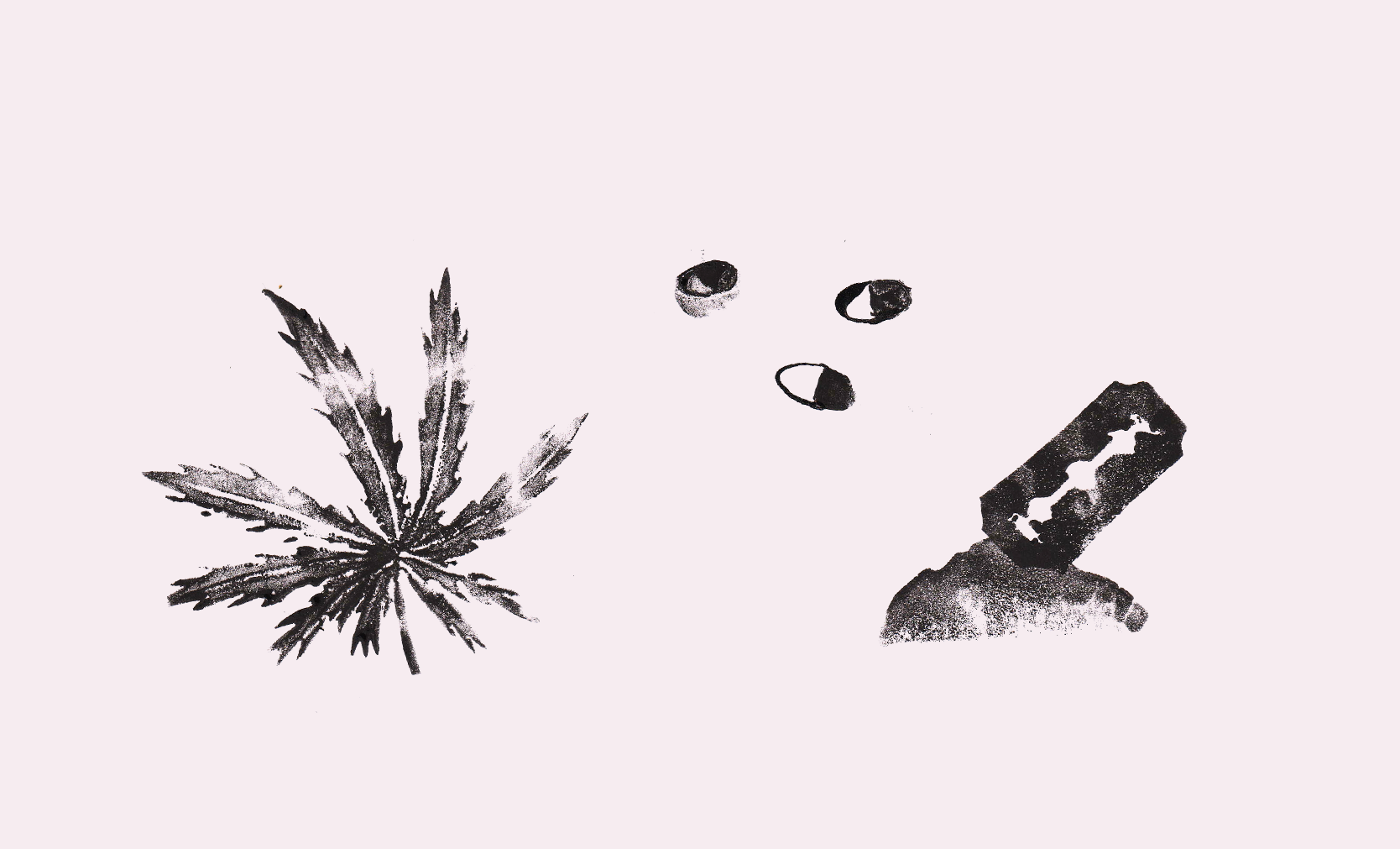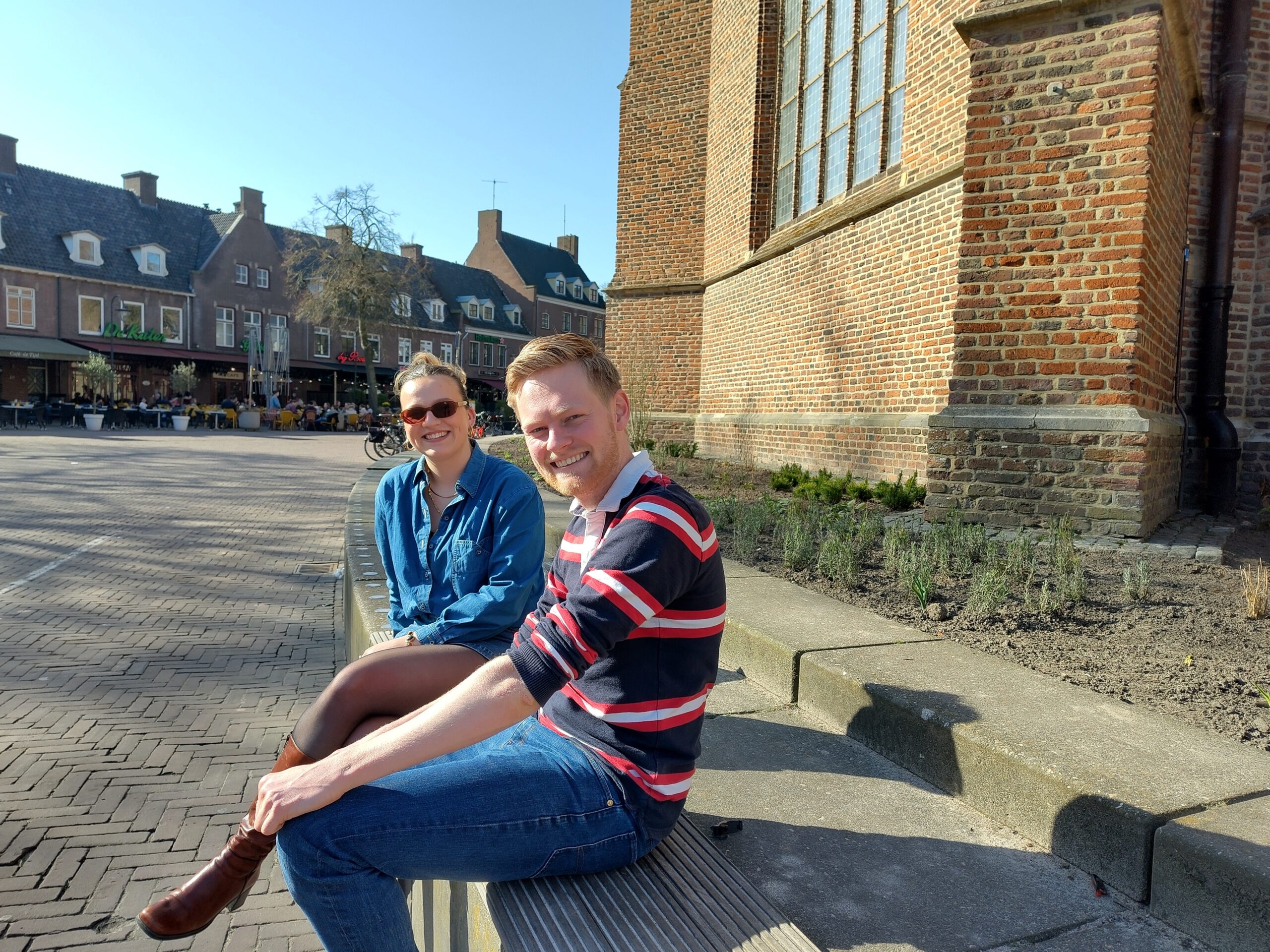Do you worry sometimes that you might be overdoing the alcohol or drugs? Or do some of your fellow students seem always to be drunk, high or stoned? In search of useful tips, Resource sat in on a meeting about substance abuse organized by the Wageningen Federation of Student Societies.
The second Where do I draw the line? meeting came in two parts. First, Nils van Tilborgh talked openly about his story: he became addicted to alcohol and cocaine while at Groningen University. Then Wageningen professor and pharmacologist Renger Witkamp (Nutrition & Health) added to that story with background facts about addiction. Resource derived the following insights from their stories.
1. Don’t assume it won’t happen to you or your friends
Becoming addicted happens faster than you think. And it definitely isn’t just about the stereotypical junkies on the street. According to the Jellinek organization, about two million people in the Netherlands are addicted to something — from drink or drugs to medicines or gambling. Addiction is found in all strata of society, although there is a big sex difference in some forms. Addiction to alcohol, medicines or drugs is twice as common among men as among women. No hormonal explanation has been found as yet for this difference, said Witkamp, so the causes are most likely to be social.
2. Misery fuels addiction
Nearly every addiction started off as curiosity: what would it be like to…? Often the experience is pleasant enough to repeat it again. And again. And again. Until the use crosses a line and starts to become problematic. ‘That dividing line is thin and is different depending on the person,’ said Witkamp. Vulnerable moments are notorious: you don’t feel happy, your love life is going badly or your grades are falling. Witkamp: ‘Addiction is more likely where there is misery.’
3. See through the lies and don’t let go
Addicts have a tendency (certainly in the early stages) to deny or downplay the problem. Van Tilborgh certainly heard that voice in his head saying he was going too far. ‘But that voice shut up when I was drinking.’ It wasn’t just a question of self-deception. Lying became second nature to Van Tilborgh, allowing him to avoid difficult questions and continue drinking and snorting coke unimpeded. He also withdrew into himself. ‘That is what addiction does to you: you become isolated and all your energy goes on maintaining your addiction. Addicts are not easy people to get on with. I was lucky my friends didn’t give up on me.’
4. More often = worse
Substance abuse leads to biological changes. Witkamp: ‘The substances disrupt the processes in your brain. They act on unstable neural networks and can trick them.’ For example, cannabis is known to make food taste nicer and to make sounds appear clearer. LSD lets you see things that are not real. Repeated use of such substances makes the receptors in your brain start behaving differently. ‘That effect can be long-term, possibly even the rest of your life. Think of the reformed alcoholics who only have to take one sip of wine to feel an overpowering urge for more.’ The biggest problem with addiction is that eventually you get habituation and a loss of sensitivity. ‘That way, you end up in a downward spiral and the addiction takes over your life.’
5. Avoid temptations
The availability of the substance is a decisive factor in addiction. That is a major issue with alcohol. Witkamp: ‘Alcohol is everywhere — and it is socially accepted. You’d cause a stir if you snorted cocaine in public, but drinking is seen as “sociable”.’ After doing rehab, Van Tilborgh decided to avoid temptation for a while. He stopped seeing his friends in the drugs scene and didn’t go to festivals or parties. He does now go to the pub again, but he no longer touches alcohol. ‘I have started dating again. It’s not very sexy when you have to explain why you’re drinking tea when she sips her wine. But that’s the way it is: as an alcoholic, I don’t have a choice.’
6. Know what you are taking
It is very dangerous to swallow or snort something blind, warned Witkamp. ‘You may have seen the videos from the US about “zombie drugs”. Their effect is quite awful: people really do walk round like the living dead. These drugs are for example synthetic cannabis and Krokodil, a kind of cheap fake heroin. They are extremely addictive and they are also in circulation in Europe. Don’t risk exposure to them — get your drugs tested!’
7. Don’t be moralistic
Be aware that addiction is a very powerful biological process that can be more than you are able to cope with, stressed Witkamp. ‘There’s no need to be moralistic about this. An addiction is a problem you need to tackle as soon as possible. Don’t be ashamed!’ He emphasized how important it is for students to look out for one another. ‘Say something if you suspect problematic use of a substance. Help each other without stigmatizing.’ Van Tilborgh had a similar message: ‘Getting angry doesn’t help, but setting limits does. Start the conversation kindly. Addiction is a disease, and unfortunately not one you can cure with a pill. But there is a medicine: connecting with others.’
Self-help group
WUR has a self-help group run by students for students with a dependency or addiction. It is not only for substance abuse but also for example gambling or gaming. The initiative was taken by a fourth-year Bachelor’s student in biology who wanted help tackling his cannabis habit but felt that approaching the Iriszorg addiction care organization was a step too far. ‘I needed a lower-threshold option. So with the help of Student Support, I set up this group,’ he says. The group meets from 20:00 to 21:30 on alternate Tuesday evenings (21/01, 04/02, 18/02 etc.) in Impulse, in the closed ‘Innovation’ room on the first floor. You don’t have to register – just walk in. The meetings are in English. You are also welcome if you just want to listen anonymously.

 Illustration Marly Hendricks
Illustration Marly Hendricks 

